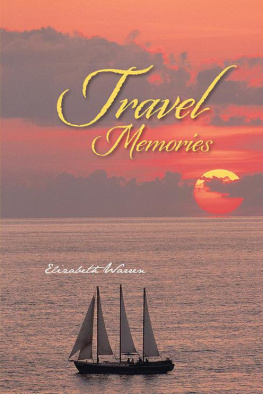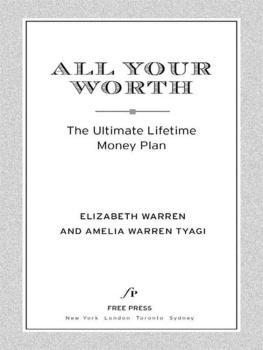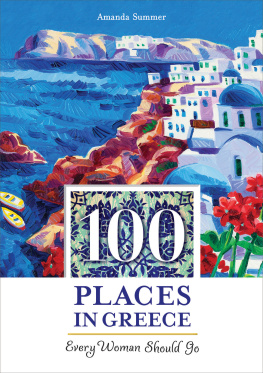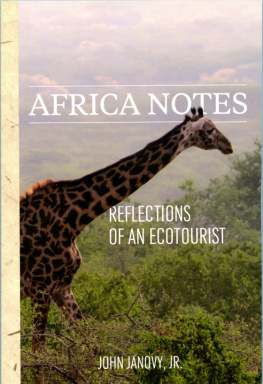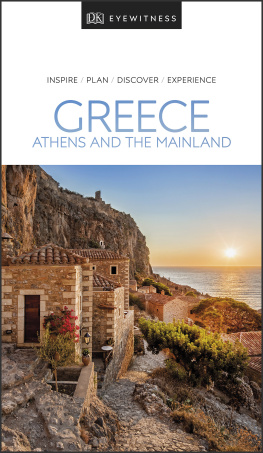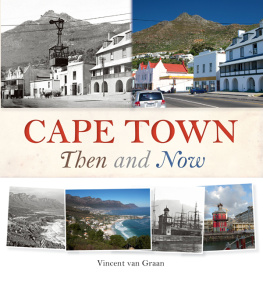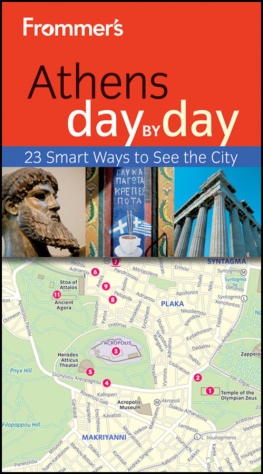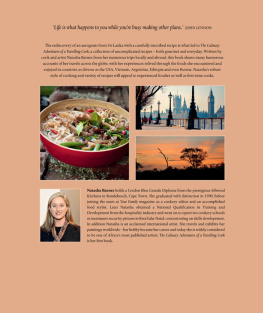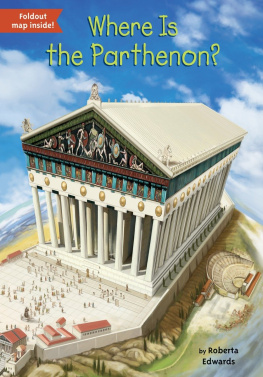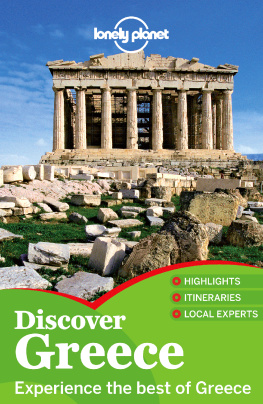Travel
Memories
Elizabeth Warren

AuthorHouse LLC
1663 Liberty Drive
Bloomington, IN 47403
www.authorhouse.com
Phone: 1-800-839-8640
2013 Elizabeth Warren. All rights reserved.
No part of this book may be reproduced, stored in a retrieval system, or transmitted by any means without the written permission of the author.
Published by AuthorHouse 10/25/2013
ISBN: 978-1-4918-2767-3 (sc)
ISBN: 978-1-4918-2766-6 (hc)
ISBN: 978-1-4918-2765-9 (e)
Library of Congress Control Number: 2013918558
Any people depicted in stock imagery provided by Thinkstock are models,
and such images are being used for illustrative purposes only.
Certain stock imagery Thinkstock.
Because of the dynamic nature of the Internet, any web addresses or links contained in this book may have changed since publication and may no longer be valid. The views expressed in this work are solely those of the author and do not necessarily reflect the views of the publisher, and the publisher hereby disclaims any responsibility for them.
Table of Contents
W hy did I fall in love with idea of travel? I think it originated with the news from Europe we were all exposed to in those early years of the 1940s. I was in my teens and at school we were learning about the cities that were suffering from bombing, about the devastation of the land, about the destruction of art works and attempts to save them, about children who had to hide from air raids. We learned songs like There Will Always be an England, and the White Cliffs of Dover where bluebirds would come again. We saw the Movietone news at the movies and saw pictures of the courageous Windsor family and the little girls Lillibet and Margaret Rose traveling their country with their father and mother doing what they could to encourage the nation. Churchill was right, those years were the Brits finest hour.
I remember the radio news about the Nazis in the Soviet Union, and about what it was like in the winter snows. I was aware more of the siege of Stalingrad than that of Leningrad, but I think that was a matter of the availability of reports. I remember about the fall of France, and the Free French government with Charles de Gaulle. The meetings of the wartime leaders, Roosevelt, Churchill and Stalin.
I knew less about the war in the Pacific because it was occurring on islands about which I knew nothing. We did learn, of course, about MacArthur losing the Philippines, and regaining them near the end of the war. I remember V-J Day, August, 1945, with an almost reverent feeling; we had won the war. And in a month I was going to College! People in my generation felt relief and joy, and a confident belief that now the world would recover and we would be the people who would help that recovery. The horrors of the Nazi death camps came home to us in March and April. The enormous threat of nuclear weapons loomed large and future wars would have to be prevented. But I had learned at school that the solution to it all lay in the skills of diplomacy. When I graduated from Chapin School in New York in May, I had decided that I would like to be an ambassador. So four years later, I married an ambassadors son!
This memoir of my travels was about picking up my fascination with European countries after 40 years of peace. European countries were no longer devastated; indeed they had recovered and formed their Common Market and their European Union. There is much in my memoir about religions because I thought that encouraging the religious faiths of people would do much to promote peace in the world. Yet the United States has learned from experience that religions are not successful vehicles for peace-making.
My travels have been so rewarding to me in other ways, that it gives me much pleasure to recount where I went in my travels and what I have learned. I am forever thankful that I could make these trips; I am most thankful to my husband, who did not want to go on these trips with me, for making them possible.
October 8-22, 1989
Introduction
T he opportunity to travel to the Soviet Union came in a mailing I received in May, 1989. Here was a chance to go to the mysterious land of Marxist-Leninist communism, now being redefined through perestroika and glasnost. Russian communism was being shaken by the directions of a new leader, Mikhail Gorbachev, now in office four years, by strikes, ethnic unrest in several of the republics, and by disappointed expectations among its people. Yet even last spring I could not have guessed the extent of change that was to occur by mid-October. All in all, this tour could not have picked a better time to go to the Soviet Union, and I have a deep sense of appreciation for the opportunity made available to me as a result of my service as President of the Village of Glencoe. The tour was open to state and local government officials who would meet their counterparts in the Soviet Union, would visit historic places, and learn about this country. Of course I paid my own way; it was important to me that this not be seen as a tax-supported junket.
My husband, whose father was a Foreign Service Officer, did not want to take the trip with me, not only because he had traveled so much growing up that he lost his taste for it, but he did not want to take time off his job for two weeks. I have always been grateful that he understood my love for traveling to interesting places and supported me in taking the trip.
During our fifteen-day tour, I kept a journal of the events that occurred each day. Other tour members might have added experiences of their own to this account; nevertheless I tried to recount comprehensively the most important aspects of the tour, particularly focusing on our meetings with Communist Party officials who are responsible for running their several levels of government. These highlights are told as parts of our daily round of activities; my own personal experiences and observations form the framework of the story.
In anticipation of our trip, I read more than half of a textbook sent to us on Law in the Soviet Union. It clearly reflected the conditions earlier in the decade of the 1980s. In this respect it formed a benchmark with which to compare conditions in the Soviet Union today. The only problem, for me, was that the textbook did not deal with state and local government, the subject of our tour, but with legal theory and practice in the USSR. While that is not exactly my area of training, it was interesting, and I took extensive notes. Otherwise, my preparation for the trip was newspaper reading; much was going on in international affairs through the summer and early fall to keep my interest at a high level. So, I left Glencoe with a great sense of anticipation rather than with any preconceived notions about what we would find in the Soviet Union. Certainly, that anticipation was rewarded.
To New York and Helsinki
I left Chicago early Sunday afternoon, the eighth of October for New Yorks Kennedy Airport. At Kennedy, I collected my heavy suitcase with the realization that I had almost more than I could manage of bag and baggage. I hauled the suitcase, aided only somewhat by its two wheels, to a shuttle bus stop where I boarded, with help, and rode around the airport to get to the terminal where Finnair was located. My first introductions to my fellow tour members occurred when two women got on the bus with their PSC bags (Professional Seminar Consultants). We introduced ourselves, but they seemed preoccupied, while I was quite excited about the trip and this difference was not conducive to conversation.
When we arrived at the proper terminal, we went inside and met out tour manager, Sue Larson, an attractive woman who seemed very friendly and in control of the details of the trip. She handed me my visa and a piece of yellow yarn which she asked me to tie to the handle of my suitcase for identification, and I was a member of the yellow group. Audrey, the other tour manager, led the blue group. I checked in, delivered my suitcase to the baggage system of Finnair with relief, and walked away from the counter area when who should appear from nowhere, as astounded as I, than Ed Meyerson. He said that he and Marion had just flown in from Paris on their way home to Chicago from a trip to Greece. He asked where I was going and I said the Soviet Union, and we walked over to where Marion was sitting and surprised her. So we sat and chatted for a little while, and I heard about their delightful tour of the Greek islands by boat. When I got up to leave, Ed said he would call Geoff when they got back to Chicago. We said good-bye.
Next page
